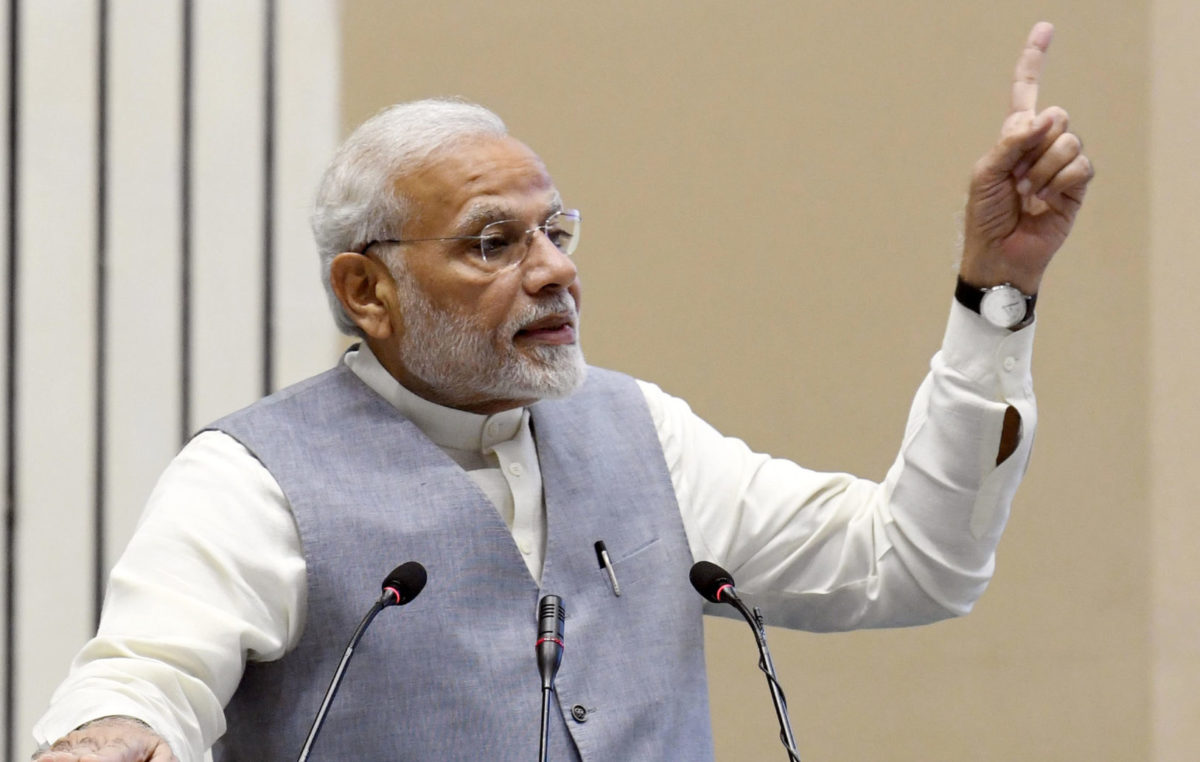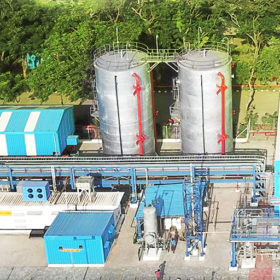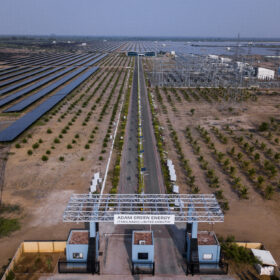The solar slice of India’s installed power capacity reached 7.46% at the end of the third quarter, marking a marginal 0.43% increase from the previous three-month period as solar installations grew from 24 GW in June to 26 GW at the end of September.
Renewable energy capacity touched 74,667.96 MW, to account for 21.41% of India’s capacity, a rise of less than 1% on the Q2 numbers.
Wind made up 9.93% of capacity – with 34,615.10 MW; hydro 13.04% (45,487.42 MW); small hydro – up to 25 MW – 1.29% (4,506.95 MW); and nuclear 1.94% (6,780 MW).
Coal continued to be the largest energy source, accounting for 56.23% of India’s power capacity, although its share declined 0.43% from the June-end figure of 56.66%.
With hydro, India’s well on the way
India has set a target of adding 175 GW of renewable energy capacity by 2022 and as part of the Paris Climate Change agreement, has committed to generating 40% of its electricity from non-fossil fuel sources by 2030.
In June, Minister of New and Renewable Energy RK Singh said if hydro power is included, India has already amassed around 30% of its Paris commitment. By 2030, 53-55% of capacity will come from renewables, the minister added.
India, with 18% of the world’s population, uses 6% of the world’s primary energy, making it the world’s fourth largest energy consumer.
According to the BP Energy Outlook 2018, by the late 2020s, India will overtake China as the largest growth market for energy, with the nation’s energy consumption growing by more than 4.2% per annum, the fastest rate among the world’s major economies.
By 2050, the country’s per capita energy consumption is expected to rise to 1.21 tons of oil equivalent, and its total energy demand will exceed 2 billion tons of oil equivalent.
This content is protected by copyright and may not be reused. If you want to cooperate with us and would like to reuse some of our content, please contact: editors@pv-magazine.com.







By submitting this form you agree to pv magazine using your data for the purposes of publishing your comment.
Your personal data will only be disclosed or otherwise transmitted to third parties for the purposes of spam filtering or if this is necessary for technical maintenance of the website. Any other transfer to third parties will not take place unless this is justified on the basis of applicable data protection regulations or if pv magazine is legally obliged to do so.
You may revoke this consent at any time with effect for the future, in which case your personal data will be deleted immediately. Otherwise, your data will be deleted if pv magazine has processed your request or the purpose of data storage is fulfilled.
Further information on data privacy can be found in our Data Protection Policy.